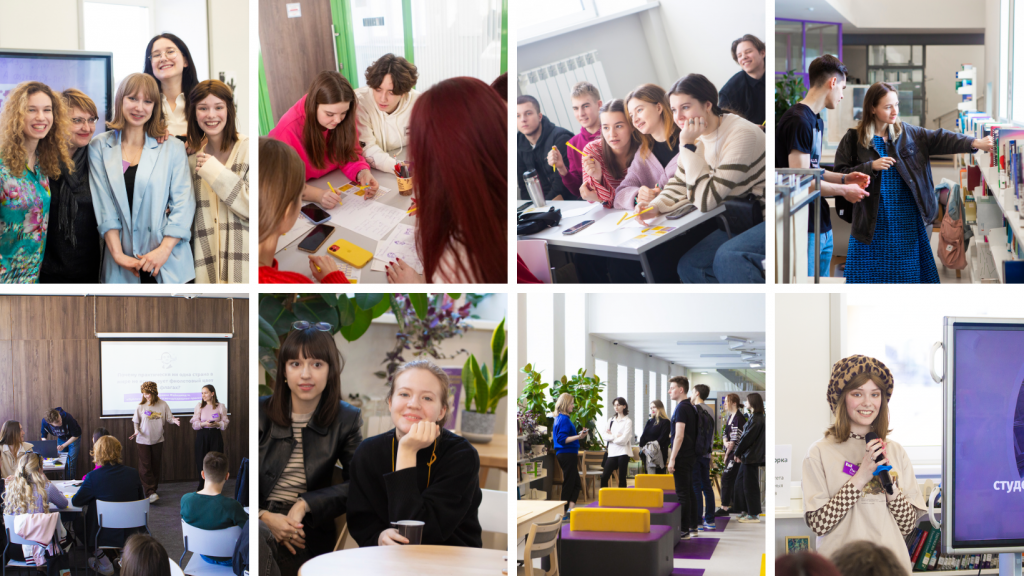The Moscow School of Social and Economic Sciences (Shaninka) is a non-state university founded in 1995 by Teodor Shanin, a renowned sociologist, peasant studies researcher, historian, and professor at the University of Manchester.
The School’s strategic goals are to combine the best practices in Russian and international higher education, to bring the academic approach back to the higher education system, to support and develop social sciences and humanities as well as the fundamental education, and to provide maximum access to educational programmes for the residents of Russia and the post-Soviet states.
The School’s strategic goals are to combine the best practices in Russian and international higher education, to bring the academic approach back to the higher education system, to support and develop social sciences and humanities as well as the fundamental education, and to provide maximum access to educational programmes for the residents of Russia and the post-Soviet states.

MSSES comprises 5 faculties that implement 35 educational programmes for bachelor’s degree, master’s degree, and professional retraining. Around 500 people study in MSSES every year. The average admission score for undergraduate programmes is 80.6 points. MSSES ranks 6th among public and private universities in the quality of admission process for fee-based programmes.
MSSES has the Russian State Accreditation, and in 2012, the School became one of 13 non-state universities that were granted State-funded places by competition.
The Moscow School of Social and Economic Sciences is headed by its Rector Maria Sigova, PhD in Economics. The School’s teaching staff is comprised of renowned scholars and practicing specialists from, inter alia, the Russian Academy of Sciences, major consulting firms, federal and regional government agencies, and leading international universities in Oxford, London, Manchester, Warwick, and Vancouver among others. The qualifications of the School’s teaching and academic staff are attested to by its regular participation in large-scale research projects conducted by Russian Public Opinion Research Center (VTsIOM), the World Bank, OECD, the National Training Foundation, Russian Foundation for Humanities, Ministry of Education and Science, and other major requesters.
Shaninka annually hosts 8 international academic conferences and summits bringing together hundreds of participants from all over Russia as well as other countries.
Among the MSSES graduates are acting and former deputy federal ministers, regional ministers and their deputies, deputy governors of various Russian regions, employees of major international organizations, professors from prestigious universities, and heads of cultural institutions. According to the annual monitoring data, 70% of our alumni are promoted to higher positions within the first year after their graduation. In total, over 4000 specialists have graduated from Shaninka to date.
MSSES has the Russian State Accreditation, and in 2012, the School became one of 13 non-state universities that were granted State-funded places by competition.
The Moscow School of Social and Economic Sciences is headed by its Rector Maria Sigova, PhD in Economics. The School’s teaching staff is comprised of renowned scholars and practicing specialists from, inter alia, the Russian Academy of Sciences, major consulting firms, federal and regional government agencies, and leading international universities in Oxford, London, Manchester, Warwick, and Vancouver among others. The qualifications of the School’s teaching and academic staff are attested to by its regular participation in large-scale research projects conducted by Russian Public Opinion Research Center (VTsIOM), the World Bank, OECD, the National Training Foundation, Russian Foundation for Humanities, Ministry of Education and Science, and other major requesters.
Shaninka annually hosts 8 international academic conferences and summits bringing together hundreds of participants from all over Russia as well as other countries.
Among the MSSES graduates are acting and former deputy federal ministers, regional ministers and their deputies, deputy governors of various Russian regions, employees of major international organizations, professors from prestigious universities, and heads of cultural institutions. According to the annual monitoring data, 70% of our alumni are promoted to higher positions within the first year after their graduation. In total, over 4000 specialists have graduated from Shaninka to date.

